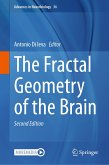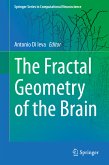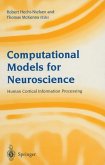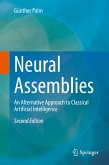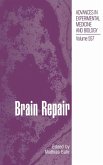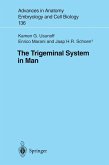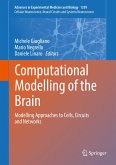Computational Neurosurgery (eBook, PDF)
Redaktion: Di Ieva, Antonio; Russo, Carlo; Liu, Sidong; Suero Molina, Eric


Alle Infos zum eBook verschenken

Computational Neurosurgery (eBook, PDF)
Redaktion: Di Ieva, Antonio; Russo, Carlo; Liu, Sidong; Suero Molina, Eric
- Format: PDF
- Merkliste
- Auf die Merkliste
- Bewerten Bewerten
- Teilen
- Produkt teilen
- Produkterinnerung
- Produkterinnerung

Hier können Sie sich einloggen

Bitte loggen Sie sich zunächst in Ihr Kundenkonto ein oder registrieren Sie sich bei bücher.de, um das eBook-Abo tolino select nutzen zu können.
This comprehensive and authoritative reference presents the state-of-the-art computational methods applied to the field of neurosurgery. The book brings together leading neuroscientists, neurosurgeons, mathematicians, computer scientists, engineers, ethicists and lawyers, to open the new frontier of computational neurosurgery to a broad audience interested in the translational field of the application of computational models, such as deep learning, to the study of the brain and the practical applications of neurosurgery. The focus is primarily clinical, and there is a solid foundation of…mehr
- Geräte: PC
- ohne Kopierschutz
- eBook Hilfe
- Größe: 49.07MB
![The Fractal Geometry of the Brain (eBook, PDF) The Fractal Geometry of the Brain (eBook, PDF)]() The Fractal Geometry of the Brain (eBook, PDF)178,95 €
The Fractal Geometry of the Brain (eBook, PDF)178,95 €![The Fractal Geometry of the Brain (eBook, PDF) The Fractal Geometry of the Brain (eBook, PDF)]() The Fractal Geometry of the Brain (eBook, PDF)177,95 €
The Fractal Geometry of the Brain (eBook, PDF)177,95 €![Computational Models for Neuroscience (eBook, PDF) Computational Models for Neuroscience (eBook, PDF)]() Computational Models for Neuroscience (eBook, PDF)113,95 €
Computational Models for Neuroscience (eBook, PDF)113,95 €![Neural Assemblies (eBook, PDF) Neural Assemblies (eBook, PDF)]() Günther PalmNeural Assemblies (eBook, PDF)113,95 €
Günther PalmNeural Assemblies (eBook, PDF)113,95 €![Brain Repair (eBook, PDF) Brain Repair (eBook, PDF)]() Brain Repair (eBook, PDF)161,95 €
Brain Repair (eBook, PDF)161,95 €![The Trigeminal System in Man (eBook, PDF) The Trigeminal System in Man (eBook, PDF)]() Kamen G. UsunoffThe Trigeminal System in Man (eBook, PDF)97,95 €
Kamen G. UsunoffThe Trigeminal System in Man (eBook, PDF)97,95 €![Computational Modelling of the Brain (eBook, PDF) Computational Modelling of the Brain (eBook, PDF)]() Computational Modelling of the Brain (eBook, PDF)105,95 €
Computational Modelling of the Brain (eBook, PDF)105,95 €-
-
-
Dieser Download kann aus rechtlichen Gründen nur mit Rechnungsadresse in A, B, BG, CY, CZ, D, DK, EW, E, FIN, F, GR, HR, H, IRL, I, LT, L, LR, M, NL, PL, P, R, S, SLO, SK ausgeliefert werden.
- Produktdetails
- Verlag: Springer International Publishing
- Seitenzahl: 557
- Erscheinungstermin: 10. November 2024
- Englisch
- ISBN-13: 9783031648922
- Artikelnr.: 72112872
- Verlag: Springer International Publishing
- Seitenzahl: 557
- Erscheinungstermin: 10. November 2024
- Englisch
- ISBN-13: 9783031648922
- Artikelnr.: 72112872
- Herstellerkennzeichnung Die Herstellerinformationen sind derzeit nicht verfügbar.

